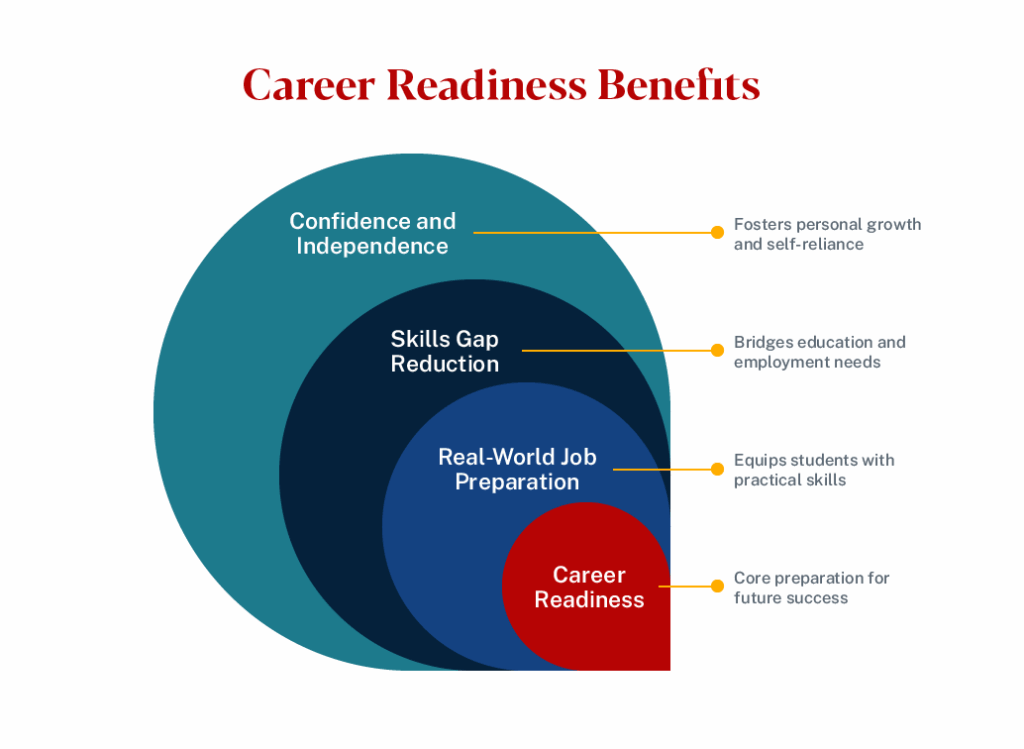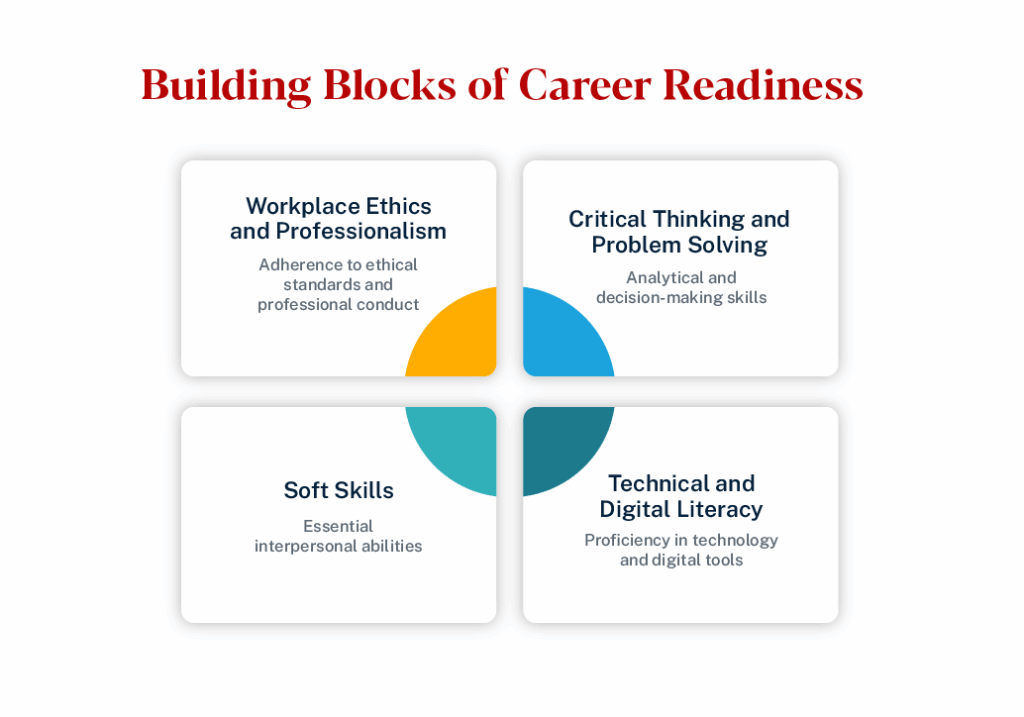
What is Career Readiness?
The qualifier for a higher salary often isn’t your GPA – it’s your career readiness. Career readiness means having the complete toolkit for workplace success: soft skills, technical abilities and strategic thinking. It’s what transforms academic knowledge into postsecondary success.
Why is Career Readiness Important?
New hires may have all the right credentials and still struggle with practical skills. You may know the theories, but can you lead virtual meetings, manage competing priorities and communicate complex ideas to different groups of stakeholders? Career readiness bridges this gap.

College Readiness vs. Career Readiness: What’s the Difference?
The concepts of college and career readiness overlap but serve different purposes. College readiness focuses on the academic knowledge and skills you need to succeed in higher education. Strong writing, research abilities, critical thinking and study habits are hopefully part of your K-12 education. Career readiness emphasizes what you need to flourish in the workplace over the long term.
Core Components of Career Readiness
Soft skills are the foundation of career-ready skills:
- communication
- teamwork
- adaptability
- emotional intelligence
- stress management
Technical and digital literacy are must-haves for the modern work environment, too. Beyond basic computer skills, do you know how to use technology for problem-solving and process improvements?
Other core components include critical thinking to analyze and solve complex problems and time management to juggle multiple priorities. Workplace ethics and professionalism are also important and set the tone for your career.

How Schools and Programs Support Career Readiness
Why is college and career readiness important? Schools play a crucial role in developing career readiness. Traditional approaches include internships, career counseling and pathway programs connecting students directly with employers. Many also offer industry certifications to provide students with the credentials employers want. The goal is for students to identify strengths and connect educational programs to career goals.
ACE Helps Students Move Forward in Their Careers
At American College of Education (ACE), career readiness is the cornerstone of our curriculum. First, we identify our students and the types of careers they want. Next, we partner with scholar-practitioners.
For example, when we applied our continuous improvement process to our M.Ed. in Literacy program, we collaborated with experts in the field. They may teach for ACE by night, but by day, they’re in the schools serving and leading as reading specialists, literacy leaders and instructional coaches. Together, we designed authentic assignments to mimic the work a student will do in their future career, and then we built our curriculum around them.
Or consider our M.Ed. in Instructional Design and Educational Technology program. Our in-house experts helped every step of the way to ensure each course reflects the real work graduates will do in the real world.
But we don’t stop there. We also partner with employers, so we know the skills graduates need for success in the workforce. Then our student success coaches work with students one-on-one to ensure their educational program connects to their career goals.
In our 2024 graduate exit survey, 98% of students agreed their program strengthened their professional skills, and 96% said it provided effective job preparation. Not only that, 96% of employers reported satisfaction with ACE graduate performance. And the results? For every $1 invested in an ACE education, students can expect $19.20 in higher future earnings.
The Learning Mindset at ACE
As work evolves alongside technology, employees will need to reskill and upskill regularly. Our approach reinforces this mindset by treating every course as an opportunity to build both current competencies and future learning capabilities.
And it’s working! According to Dominick Martin, “My education at ACE has significantly impacted my career by providing me with practical, relevant skills that have enhanced my leadership abilities and decision-making in the professional world.”
Jazzmyne Townsend remarks: “My work as an educator provides students with the skills, knowledge and competencies to become critical thinkers, creatives and change agents who are prepared to build a brighter future!”
How Students Can Take Initiative
You can launch your college and career development by taking several key steps.
- Research career options and emerging trends to identify areas matching your skills and interests.
- Look for internships, mentors and job shadowing opportunities to test career paths, build confidence and gain experience.
- Build your professional network. Attend events, join professional associations and engage on LinkedIn.
- Commit to lifelong learning. Set specific goals and work toward them.
Final Thoughts: The Future of Career Readiness
The gap between those who are career-ready and those who aren’t will only grow as technology changes how we work. Those who thrive treat career readiness as an ongoing journey. Partner with ACE to unlock your career potential!
Career Readiness FAQs
What is the definition of career readiness?
Career readiness means having the skills, habits and knowledge needed to succeed in the workplace.
Why is career readiness important in high school?
It ensures students are equipped to handle jobs, internships or college without needing to “catch up” after graduation.
What are examples of career readiness skills?
Examples of career readiness skills include teamwork, time management, digital literacy and communication.
What is college and career readiness?
It’s the ability to enter post-secondary education or the workforce with the necessary preparation and confidence.

